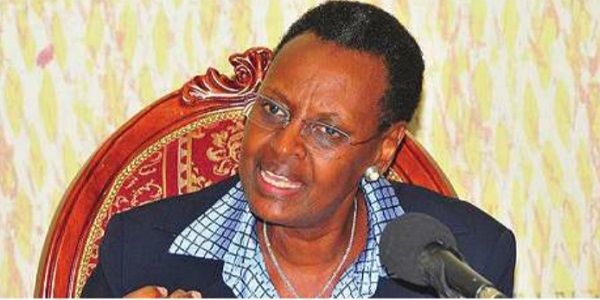
“We need good, well trained science teachers who are passionate about student learning but right now many schools lack science teachers,” she said.
“We also need good methods of teaching science which make science learning meaningful and interesting,” she said, “Current teaching is very theoretical and does not relate text book knowledge to the real world, which in turn leads to rote learning and cram work.”
Nakabugo added that most schools hardly have laboratories to conduct the most basic of science practicals
“Unless all the above three are in place across all schools, let us rethink the compulsory science policy. There is no need to continue producing failures in the name of policy,” she said.
As the search for better performance continues, the current low uptake and performance in science exams is likely to slow the development of the country. Mary Okwakol, the UNEB Chairperson pointed out that sciences are vital in spurring the development of any country. And, as Odongo noted, the low enrollment in sciences at secondary school level, affects other programmes in higher institutions of learning.
Twelve years ago, the government introduced a policy that made the core science subjects; physics, chemistry, biology and mathematics compulsory for all lower secondary level students.
The policy was in line with the government’s bold step to boost science education as a strategic investment to create a critical mass of scientists and engineers to spur growth and development in the country.
A similar policy was adopted at the tertiary level where half of the students on government scholarship must study science and technology. It meant rectification of longstanding attitudes that promoted and valued arts and social science—a stance which led to the shunning of science right from primary level.
The policy is meant to fast-track Uganda’s mission of achieving middle-income status spelt out in the country’s development blue print, Vision 2040, which seeks to have a transformed Ugandan society from a peasant to a modern and prosperous one within the next 22 years.
But experts insist the fundamentals must be got right. These include; putting up the necessary infrastructure, promoting science, technology, innovation, engineering and upgrading the human resource especially the youthful population.
So far, although focusing on improving the quality of science teachers and recruiting more of them as recommended by the 2016 UNESCO International Institute for Capacity Building in Africa might appear well intentioned, it might not tell the whole story of poor learning outcomes.
The report argues that low quality education and poor learning outcomes are not simply caused by a lack of teachers, poor training or poor instructional practice but reflect historic investment made in the education sector, the quality of policy making and the cumulative impact of many different decisions taken, and tradeoffs made, across national education systems.
Focusing on the student’s masterly of English, which is the language of instruction, might be one of the tradeoffs required for better results. In other words, ensuring that students are able to read and understand the science textbooks in addition to the teachers using their reference books as emphasized by officials from the Education ministry, might improve the performance in science exams more than the dogmatic emphasis on practical laboratory work.
 The Independent Uganda: You get the Truth we Pay the Price
The Independent Uganda: You get the Truth we Pay the Price




TEACHERS
SHOULD BE MOVITED UP AND
STUDENTS SHOULD CONSULT WHERE THERE IS NEED